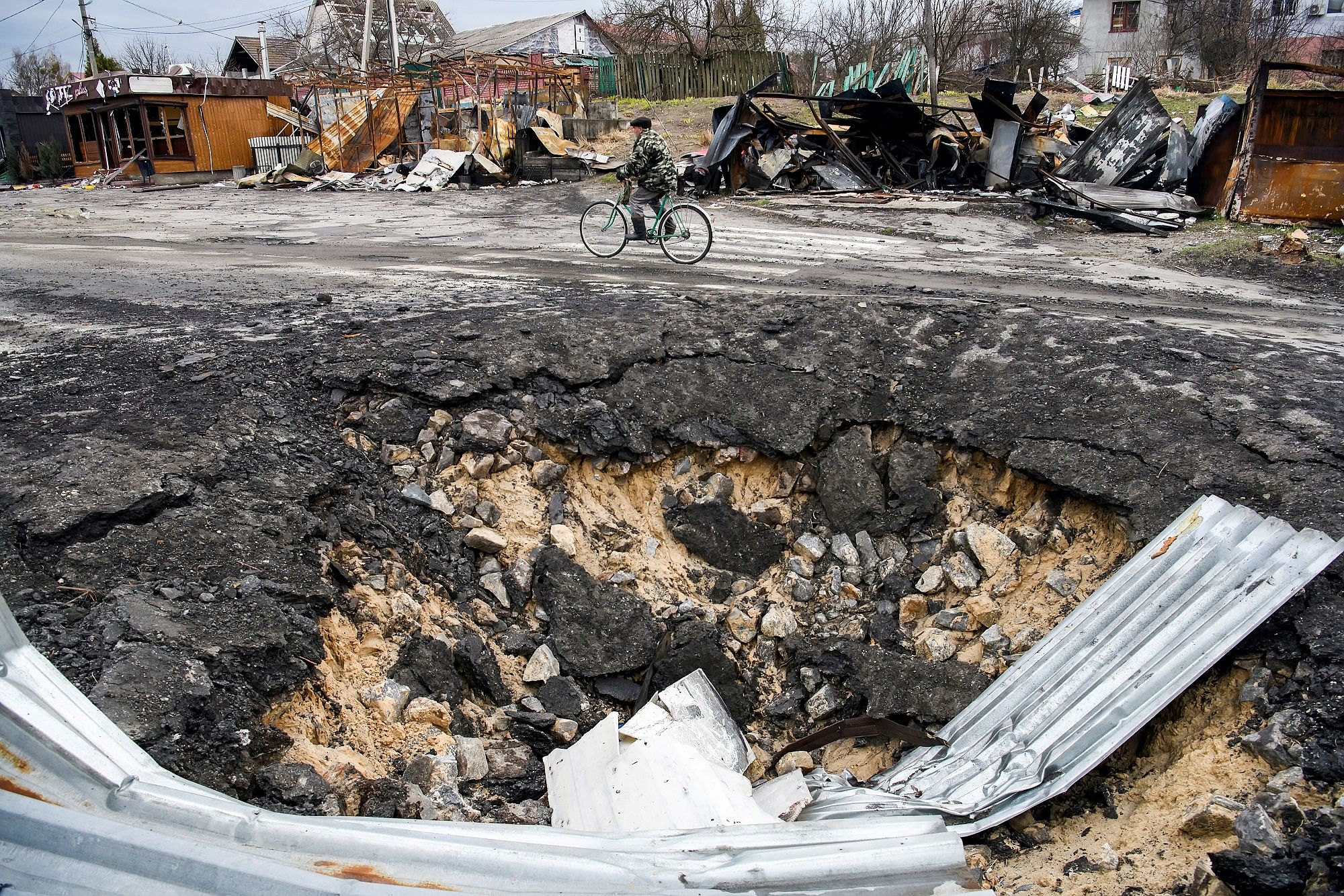LONDON - Foreign ministers from the 30 member states of Nato, the United States-led military alliance in Europe, have ended a two-day summit in the Belgian capital of Brussels without resolving internal divisions over the supply of weapons to Ukraine, currently facing a Russian onslaught.
However, they did accept that China's political support for the Russian invasion should be treated as a security challenge to the alliance and included in Nato's future planning.
"We have agreed to strengthen our support to Ukraine, so that Ukraine prevails in this war," Nato secretary-general Jens Stoltenberg said at the conclusion of the summit on Thursday (April 7).
But he refused to explain what this means in practice. "Allies believe it is better not to be specific," he added.
Ukrainian Foreign Minister Dmytro Kuleba came to the Nato meeting with what he claimed was a straightforward message.
"My agenda is very simple. It has only three items on it. It's weapons, weapons and weapons," he told the Nato member states.
He called for the dispatch of more planes, air defence systems, missiles and military vehicles from Nato allies.
"The more weapons we get, and the sooner they arrive in Ukraine, the more human lives will be saved," Mr Kuleba said.
"And there will be no more Bucha," he said, referring to the town in which mass atrocities against civilians were discovered after Ukrainian forces liberated the place from a month-long Russian occupation.
Mr Kuleba's appeal was strengthened with the release of assessments compiled from British intelligence sources suggesting that Russian troops are now targeting, in particular, Ukrainian infrastructure and supply lines in order to prevent the arrival of Western reinforcements before what is expected to be a renewed Russian assault.
Yet, some Western nations remain reluctant to consider transfers of key weapon systems, fearing that this could increase the risk of a bigger confrontation between the West and Russia. Germany is accused by Ukraine of being particularly reluctant on this matter.
However, there are also other European governments that continue to make a distinction between supposedly "defensive" equipment that Ukraine can have, and "offensive" systems that should not be supplied.

At the end of the Brussels summit, Mr Stoltenberg said that given the current fighting, the distinction between defensive and offensive military supplies now seems "strange" and no longer makes sense.
Nonetheless, he still considered it prudent to leave the decision on which weapons should be supplied to individual member states, rather than to the alliance as a whole, as the Ukrainians wanted.
Still, Nato seems to have made progress on discussing the broader impact of the Ukraine war.
Unusually, the meeting was also attended by the foreign ministers of Australia, Japan, South Korea and New Zealand for a discussion on the strategic implication of China's stance on the conflict.
At the end of the summit, Nato's secretary-general repeated in almost exact terms the criticism he had levelled at China earlier in the week.
He accused Beijing of having "chosen" to support the Russian justification for the invasion of Ukraine and having "joined Moscow in questioning the right of nations to choose their own path".
Mr Stoltenberg characterised this Sino-Russian military cooperation as a "systemic challenge to global security" and announced that Nato has decided to offer its "Asia-Pacific partners" who are "standing together for our shared values" assistance in a variety of areas.
These will include offers of Nato help with countering cyber attacks and state-sponsored disinformation offensives, as well as efforts to "improve maritime security" in Asia and develop new military technologies.
Again, Mr Stoltenberg refused to be drawn into specifics.
But, in a move with potentially far-reaching consequences, he announced that Nato states agreed the military alliance's new strategic concept document, scheduled to be presented for approval at a summit in June, will include a specific mention of China, "and on how it affects our security".
Nato remains upbeat about its ability to maintain its strong internal political cohesion, despite differences over weapon supplies.
Yet, all foreign ministers remain pessimistic about the military prospects in Ukraine.
"Be prepared for a long haul: weeks, months and even years of warfare," Mr Stoltenberg warned at the end of the Brussels meeting.


